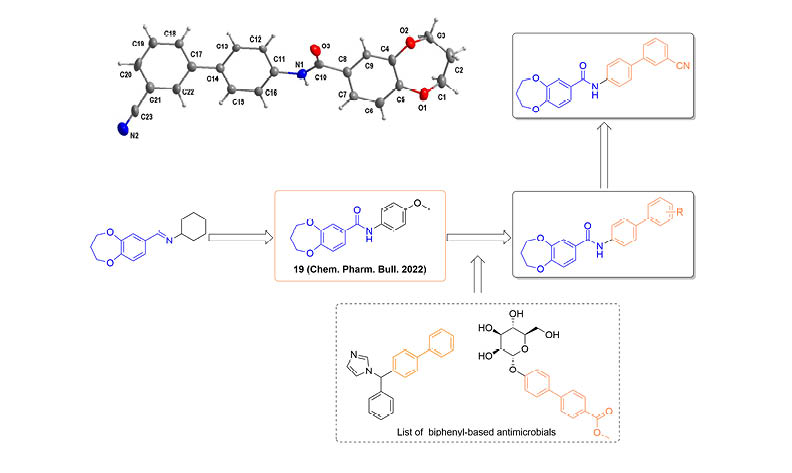Synthetic Optimization and Antibacterial Activity of Novel Benzodioxepine-Biphenyl Amide Derivatives
DOI:
https://doi.org/10.17344/acsi.2024.8784Abstract
The biosynthesis of fatty acids constitutes a critical metabolic pathway in bacterial organisms. Prior investigations have highlighted the synthesis of antimicrobial compounds anchored in the benzodioxepin scaffold, noted for their pronounced antibacterial properties. Leveraging this foundational knowledge, the current research endeavors to meticulously engineer and synthesize a series of eight innovative benzodioxepin amide-biphenyl derivatives. This achievement was realized through the sophisticated optimization of synthetic methodologies. The scope of this study extends to a rigorous evaluation of the antibacterial prowess and biocompatibility of the aforementioned novel derivatives. Notably, Compound E4 emerged as a supremely potent antimicrobial agent. A detailed elucidation of the crystalline architecture of Compound E4 was conducted, alongside a thorough docking study to explore its interactions with the FabH enzyme.

Downloads
Published
Issue
Section
License
Copyright (c) 2024 Shao-Peng Yan, Zhi-Yu Zhu, Qi-Ke Jia, Rui-Ying Ji, Ya-Pin Wang, Dan He, Rong Wang, Yang Zhou

This work is licensed under a Creative Commons Attribution 4.0 International License.
Except where otherwise noted, articles in this journal are published under the Creative Commons Attribution 4.0 International License
